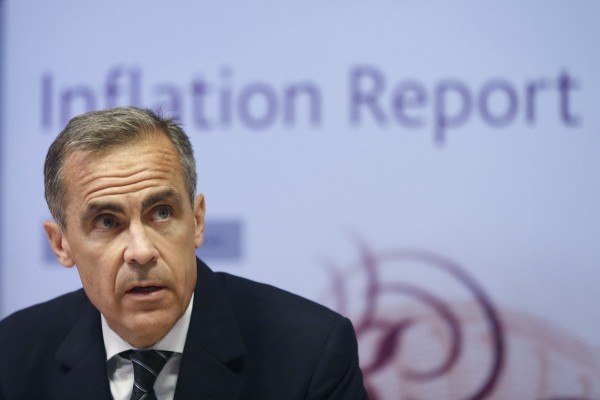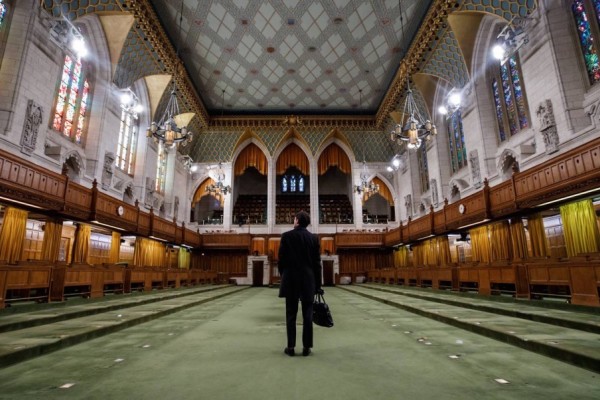Liberal budget fails to meet the crises facing Canadians

According to CD columnist Christo Aivalis, the 2021 federal budget contains some decent elements, but its flaws and omissions are too significant to be ignored. Photo from Twitter.
Yesterday’s 2021 federal budget tabled by Liberal Finance Minister Chrystia Freeland fails to meet the needs of Canadians during the greatest crisis facing this country since the Second World War.
While there are certainly decent elements in this budget, the flaws and omissions are too significant, leaving notable space on the left to critique and improve upon it.
The childcare announcement in this budget is significant and very much welcome. Essentially, the Liberals are promising—should they get provincial buy in—$10-a-day childcare by the middle of the decade. It is also a bigger plan in terms of expenditure than previous versions by Liberal and Progressive Conservative governments over the last few decades.
Clearly, this is the centrepiece of the 2021 budget, though it could be clearer on how it plans to ensure capacity, because in many places there is simply not enough room for all children seeking quality care, even when cost is not a barrier. If this plan is implemented, it will strike a real blow for women’s equality, and will be a monumental victory for generations of feminist, labour, and educational activists across the country.
But there should remain deep skepticism. This is the Liberal Party, after all, who have been proposing childcare since at least the time I was young enough to be in care. Now with a son of my own half-way through his daycare years, that plan does not exist, despite many years of Liberal majority government. I would not be surprised if this plan ends up on the scrapheap following an election, especially should the Liberals win a majority.
One hint that their commitment is less than total is in how money is allocated. Only $2 billion is earmarked this year, which is curious, because Freeland herself noted that COVID has exposed the immediate need for childcare; but there doesn’t seem to be immediate action. Recall that this is the government which instantly found $4.5 billion for a pipeline. That it won’t immediately invest that much into childcare should raise suspicions about their intent.
It must also be said that nothing in the childcare program challenges the perverse notion that profit-motives should drive the most crucial years of childhood education and development. Ultimately, the goal should be a childcare system that functions as our K-12 system does. There is no sense that the Liberals have that vision in any meaningful way. This connects well to their announcement that they plan to work with provinces to implement rudimentary long-term care standards, which currently don’t exist within the Canada Health Act.
But one suspects that this will in no way challenge the profit-driven methods that many LTC facilities operate under, and which undermine our efforts to maintain and expand a system of socialized medicine. A progressive government would make it clear that—unless profit-based care is prohibited in the provinces—they will lose access to certain portions of federal health transfers. That may be hardball, but given that profit kills, it is fully warranted.
Likewise on climate, the budget fails to offer a Green New Deal and just transition that leads us away from climate calamity. As the Canadian Centre for Policy Alternatives noted, isolated elements on this file are welcome—including investments into public transit—but the budget refuses to “tackle Canada’s dependence on fossil fuel production. Without a clear plan and timeline for winding down oil and gas extraction we simply cannot meet our net zero emission target.” This is not simply a question we can shunt off to another budget. If the Liberals genuinely think childcare is a worthy investment, they must also take seriously the environmental crisis we are leaving those very children.
But perhaps the most glaring omission in the 2021 budget is on pharmacare, especially given that it was something the Liberals ran on during the 2019 election, and has been further exposed as a priority amidst this pandemic. Clearly Canada needs to invest in the domestic production of pharmaceuticals, and beyond this, the folly of tying essential healthcare—including dental and optical care—to employment status is especially ridiculous at a time when millions of Canadians have been rendered unemployed.
Canadians need a national pharmacare program, the vast majority of Canadians want one, and the Liberals’ own commission by former Ontario Health Minister Eric Hoskins recommended one. That the Liberals are not showing initiative and urgency here signals that they have no issue with Canadians suffering and dying from a lack of access to essential care.
There are also items in this budget which are actively concerning. Canada continues to invest large amounts of money into weapons of war, purchasing over 100 new combatant vessels and fighter jets, the full cost of which may be more than $350 billion dollars: more than ten times the planned investments into childcare. Clearly—if the Liberals shifted priorities—they could choose to make childcare zero-cost, but have obviously gone in a different direction. And while a tiny sum of money, the Liberals committing millions to the ‘Memorial to the Victims of Communism’ is little more than the legitimatization of far-right propaganda and false equivalencies that pervade 21st century politics.
Finally, we come to how the budget will be financed. On the one hand, it is encouraging to see that this is not an austerity-minded document. Clearly the Liberals are willing to borrow money to cover increased expenditures, and with very low interest rates, there are few consequences. But they very much drop the ball when it comes to raising revenue from the rich and wealthy.
While the Liberals have proposed a luxury tax on expensive cars, private planes, and boats, this is window-dressing that generates little revenue. Where a real blow could be struck—on increased income, wealth, and capital gains taxation—the government has been silent. This is not only about raising funds (which could cover missing items in the budget like pharmacare, or invest even more deeply into childcare) but also about the unequal nature of this pandemic.
Even more than before, this crisis has been paired with disgusting gains for the Canadian and global elite, who are richer than ever before. As we plan a better society, we must not only ensure the rich pay the brunt of reconstruction, but that their profiteering be nullified and redistributed.
Before concluding, we must ask where this budget leaves the NDP. Given the third wave of COVID, and given that this budget could have certainly been worse, Jagmeet Singh and his party are correct to not force an election. Indeed, this budget offers positive signs for the NDP. Singh and company can feel vindicated that the Liberals—who have for years slammed NDP calls for investments into healthcare and education as violations of provincial jurisdiction—are now embarking on some of those interventions. It is also the case that the Liberals, who mocked the NDP’s $15 federal minimum wage as meaningless in 2015, are now implementing it six years too late, and at a time where the NDP is demanding a $20 federal minimum.
This budget also leaves a good deal of room on the left to be criticized. This is the case with pharmacare and student debt but also on climate investment as well as the lack of taxation upon the rich. If the NDP seizes this opportunity, they can claim victory for inspiring elements of the budget while showing Canadians how much better things could be.
Christo Aivalis is political writer and commentator with a PhD in History. His work has appeared in the Washington Post, Globe and Mail, Maclean’s, and Passage. He can be found daily on YouTube and at his new podcast Left Turn, Canada.







_01_600_400_90_s_c1.jpg)


